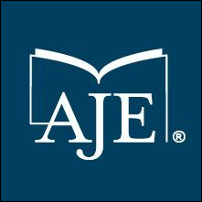Aim & Scope
Aim
The Administrative Review: Public Administration and Policy (ARPA) is the flagship double-blind peer-reviewed journal of the Eastern Regional Organization for Public Administration (EROPA) and the Association of Administrative Professions of Asia (AAPA). ARPA aims to be the definitive scholarly platform for examining public administration and policy within the unique socio-political, economic, and cultural contexts of the Asia-Pacific region and the Global South.
We prioritize publishing comparative and contextually nuanced research that addresses the specific governance challenges of developing, transitional, and emerging economies. Our mission is to bridge the gap between theoretical scholarship and practical application, providing evidence-based insights that inform policy reform and capacity building for effective, equitable, and resilient governance.
Scope
ARPA's scope is intentionally focused on the dynamics of public administration and policy as practiced in Asia-Pacific and Global South nations. We welcome robust empirical studies, theoretical advancements, and systematic case studies that employ qualitative, quantitative, or mixed-methods approaches. A core emphasis is placed on research that offers comparative analysis, draws practical lessons, and contributes to policy learning across member states of EROPA and AAPA.
Key Areas of Focus for ARPA Journal
-
Administrative Traditions and Reform in Asian Bureaucracies
Description: This area examines the evolution and reform of public bureaucracies shaped by distinct historical, cultural, and political contexts—from Confucian and post-colonial systems to Pacific Island governance models. We seek research that moves beyond importing Western New Public Management templates, instead focusing on how traditional values (e.g., patronage, collectivism, meritocracy) interact with modern reform agendas like performance management, digitalization, and open government. Studies should offer critical insights into building effective, accountable, and contextually-grounded civil services across the region. -
Decentralization and Local Governance in Fragmented States
Description: This focus area tackles the profound governance challenges of delivering services across vast archipelagos, remote highlands, and multi-ethnic states. We welcome analyses of fiscal decentralization, the capacity of sub-national governments, and the interplay between traditional leadership structures and modern local administrations. Particularly valuable are studies on managing regional inequalities, secessionist movements, and ensuring equitable service delivery in geographically and socially fragmented environments unique to the Asia-Pacific. -
Innovative Service Delivery for Informal Economies and Rural Populations
Description: A significant portion of the region's population operates within informal economies and resides in rural or peri-urban areas. This section prioritizes research on innovative policies and mechanisms that extend the state's reach to these often-underserved groups. This includes studies on digital financial inclusion, mobile-based government services (m-governance), community-driven development programs, and social protection schemes designed for informal workers, migrant populations, and indigenous communities. -
Disaster-Resilient Governance and Climate Adaptation Policy
Description: As the world's most disaster-prone region, the Asia-Pacific requires unique governance structures for preparedness, response, and recovery. This area investigates polycentric governance models for disasters, climate adaptation policy integration into national planning, community-based resilience building, and the role of the military in civilian emergency response. We seek evidence-based research that informs policy for mitigating the devastating impact of typhoons, earthquakes, floods, and sea-level rise on communities and economies. -
Anti-Corruption and Integrity Frameworks in High-Risk Environments
Description: Combating corruption requires strategies that are effective within specific socio-political contexts. This section promotes research evaluating the effectiveness of anti-corruption agencies, whistleblower protection mechanisms, and transparency initiatives in environments characterized by patronage networks and rent-seeking. We encourage studies exploring the role of religious and traditional values in promoting integrity, the use of technology for accountability (e.g., open contracting, e-procurement), and comparative analyses of what works—and what doesn’t—in different regional settings. -
Digital Governance Leapfrogging and AI Ethics in Developing Democracies
Description: This area explores the dual-edged sword of rapid digital transformation. We seek studies on "leapfrogging"—how countries bypass legacy systems to implement digital ID, e-payments, and data-driven policy—while also critically examining the societal implications. This includes urgent debates on preventing digital authoritarianism, mitigating AI bias, protecting data privacy, addressing the digital gender divide, and ensuring that technological adoption strengthens, rather than undermines, democratic accountability and human rights. -
Policy Implementation and SDG Localization in Complex Systems
Description: This focus addresses the critical "implementation gap" between national policy ambitions and on-the-ground realities. We welcome research on the strategies and challenges of localizing global frameworks like the UN Sustainable Development Goals (SDGs). This includes the role of street-level bureaucrats, the politics of inter-agency coordination, budgeting for results, and community engagement in multi-level governance systems. Studies should provide practical insights into achieving coherent policy implementation despite limited resources and capacity constraints. -
Public-Private-Community Partnerships for Infrastructure and Development
Description: Moving beyond conventional Public-Private Partnership (PPP) models, this area investigates innovative collaborative governance frameworks that include community stakeholders (PPCPs). We are interested in analyses of risk-sharing in volatile economies, community benefit agreements, conflict resolution in large-scale land acquisitions for infrastructure, and the governance of projects in energy, transportation, and water. Studies should draw lessons from both successful and failed partnerships, offering models for equitable and sustainable development.












